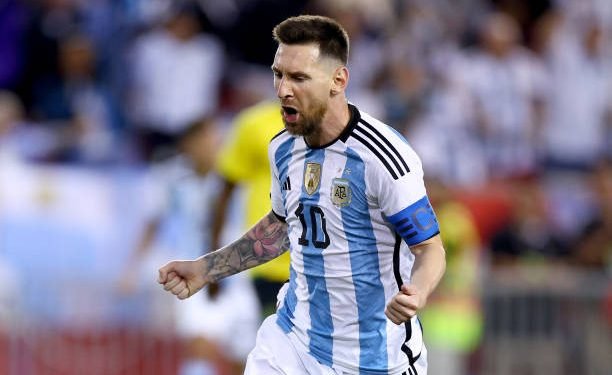Lionel Messi’s once-in-a-lifetime career is over. Argentina’s superstar has won the World Cup for the first time.
Argentina won the World Cup for the third time on penalties, defeating France 4-2 on penalties, despite Kylian Mbappé completing the first hat trick in a final in 56 years.
There is no longer any debate. Messi is unquestionably among the best soccer players of all time, alongside Pelé — a record three-time World Cup champion from Brazil — and Diego Maradona, a late Argentina great with whom Messi was sometimes compared.
Messi did for Argentina what Maradona did in 1986: he dominated a World Cup. The torch will be passed to Mbappé, whose late goals lit up one of the tournament’s most spectacular finals in its 92-year history, making him the first player to score a hat trick in a final since 1966, but not just yet.
“Argentina, hurry up!” During the post-game celebrations, Messi yelled into a microphone on the field.
Argentina took the lead from the penalty spot when Messi assisted Angel Di Maria’s goal, which made it 2-0 after 36 minutes.
Mbappé scored two goals in 97 seconds to force extra time, and Messi added his second goal in the 109th minute. However, there was still time for Mbappé to score another penalty and send the game to a shootout.
Gonzalo Montiel scored the game-winning penalty kick after Argentina goalkeeper Emi Martinez saved Kingsley Coman’s effort, and Aurelien Tchouameni missed for France.
Europe’s streak of four consecutive World Cup victories came to an end. Brazil was the last South American champion, and it was also in Asia when Japan and South Korea hosted the tournament in 2002.
WORLD CUP VICOTORY
Argentina’s most recent World Cup victories came in 1978 and 1986. Qatar improved on its Copa America victory from the previous year, which was its first significant victory since 1993. It’s a fitting end to Messi’s international career, which may not end even though he’s 35 and playing as brilliantly as ever.
It was also a fitting conclusion to a one-of-a-kind World Cup – the first held in the Middle East and the Arab world.
For FIFA and the Qatari organizers, a final between two big soccer nations and the world’s two finest players was the ideal way to end a tournament marred by scandal since the vote to award the event to a tiny Arab emirate in 2010.
Since then, the focus has been on the change in dates from June to December, harsh criticism of how migrant workers have been handled, and concern over delivering soccer’s largest event to a country where gay activities are prohibited.
On Sunday, most people had a story in mind: Could Messi do it?
He could, despite Mbappé, Messi’s colleague at PSG, doing everything he could to replicate Pelé by winning his first two World Cups.
